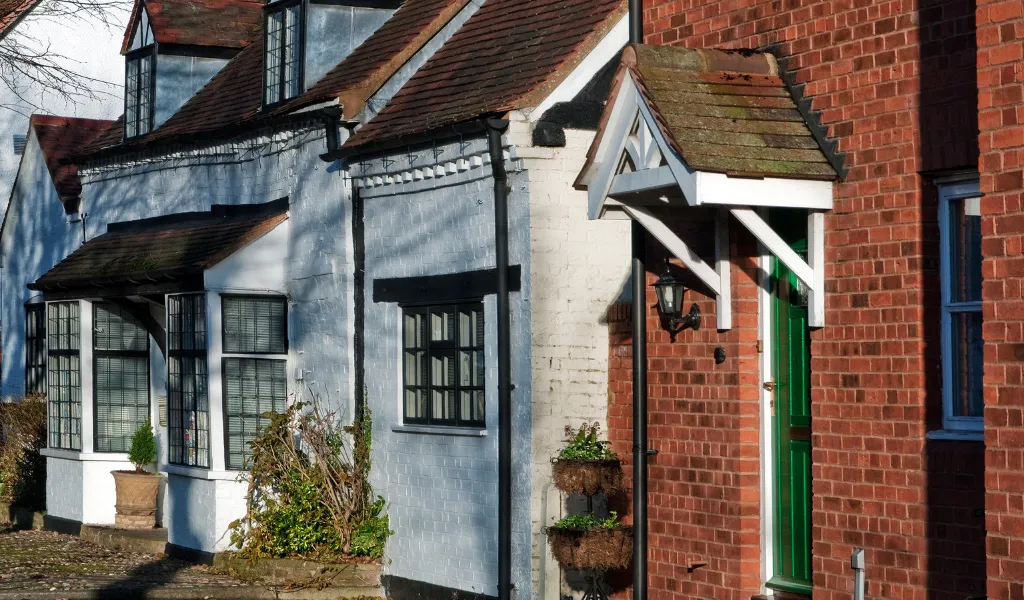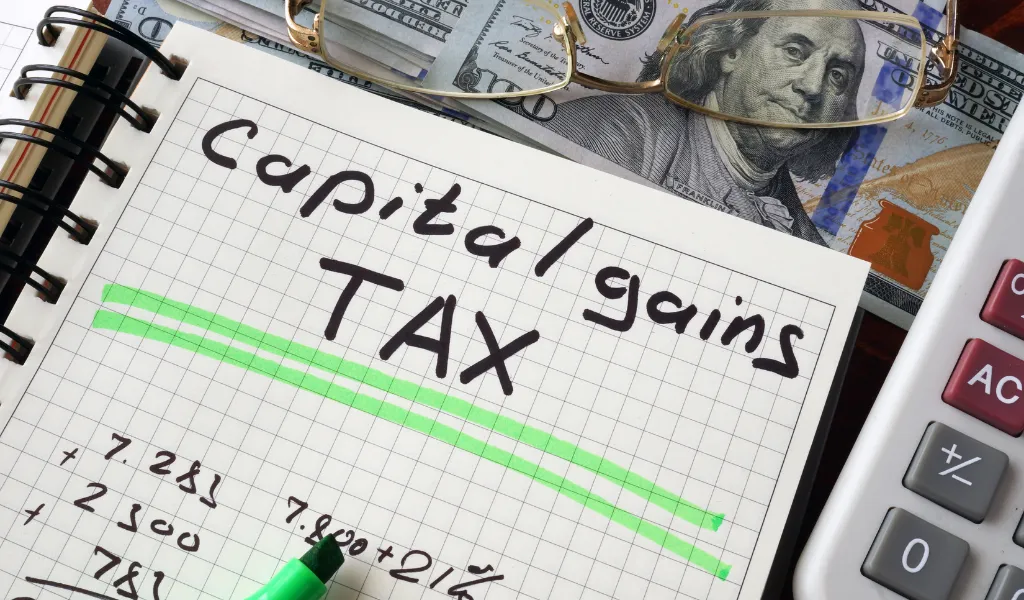When you step into the property investment business, you come across various types of properties. As a property investor, it is best to know the pros and cons of each type. You must conduct thorough research before you can invest. So, what is a freehold property? How can you purchase a freehold property? This guide will cover all that and more.
Undoubtedly, it is a complex matter. You must comprehend that freehold has a special definition. It is important for you to know all the details before you purchase a freehold property.
First, let’s discuss the definition of freehold property. Then, we can move on to the more complex issues at hand.

What is a Freehold Property in the UK?
What does it mean to purchase a property freehold? Well, if you buy such a property, then you own the property as well as the land it is built on. Keep in mind that if you do not make your mortgage repayments, then your mortgage company can still repossess it.
This type of ownership is sometimes called ‘fee simple’. Otherwise, it is called a ‘title absolute’ as it is complete ownership of the property. This means that all expenses related to the property are your responsibility. For example, building insurance and repairs.
In most cases, you do not have to deal with maintenance charges. They only apply if you share any services with your neighbours. An example as such are communal gardens.
You will find that most houses are freehold. Also, you can share the freehold with your neighbours in the case of certain flats. It is possible as part of a management company.
Following are the main features of freehold ownership:
- You have ownership of both the building and the land.
- The ownership of land is for ever.
- It is your responsibility to insure any property on the land.
- There is no need to pay ground rent.
- Maintenance of any building on the land is your responsibility.
Therefore, you must understand what is a freehold property.
Difference Between Freehold and Leasehold
Now, let’s talk about the difference between freehold and leasehold. With freehold property, you own both the land and the building. This ownership is for an indefinite period.
Unlike leasehold arrangements, if you own a freehold property, then there is no need for you to keep track of the years left on the lease. Furthermore, you do not have to pay ground rent or any other charge to the property owner. In case of a freehold property, you are your own landlord.
Additionally, you do need to the approval of a property manager or separate property owner to make any necessary repairs. You have complete authority to make the required changes.
Therefore, as the owner of a freehold property, you have more independence and flexibility. You are free to make your own decisions regarding the renovation and maintenance of the property.
Whereas, with leasehold property, you own the building, but not the land on which it is built.
You have a contract with the freeholder, as they are the owner of the land. This contract will state the terms of your ownership. These terms can include restrictions. For example, no pets in the building or no subletting.
In comparison to freehold, leasehold ownership has an expiration date. This means your ownership is limited for a limited time only. You can extend the lease. If you fail to do so, then it will lead to a freehold reversion.
You must pay ground rent, maintenance fees, and annual service charges to the property owner in case of a leasehold. Whereas the property owner will take care of the common areas of the building. This includes elevators and hallways. Thus, you should know what is a freehold property.
Freehold vs Leasehold
| Freehold | Leasehold |
| Higher sale price | Lower initial costs |
| Ownership of both building and land | Ownership of only building |
| Complete control | Restrictions by freeholder |
| There are no additional extras | Additional extras such as car park |
| You are responsible for fixing property | Freeholder is responsible for fixing property |
| Ownership is for ever | Ownership is for a limited time only |
| No ground rent | Ground rent |
Advantages of Purchasing a Freehold Property
Now, the question arises whether it is worth purchasing a freehold property. Well, there are plenty of benefits you can avail. For example, you do not have to worry about paying ground rent or service fees. Furthermore, you do not need to abide by any rules. No one is going to place any restrictions on you and how you live there.
The best part about owning a freehold property is that you are the decision maker and have total control over the land.
Additionally, there are no restrictions on building work. You can keep pets if you like, unlike in the case of leasehold properties. You have the benefit of complete freedom.
If you own a leasehold property, then you do not have this freedom. In fact, the freeholder can place restrictions on you, such as not allowing you to sublet. Therefore, there are drawbacks to leasehold properties.
Not to mention that your lease can expire, so you are on a time limit. To add to it, there are more people involved in your ownership. Whereas there is no such limit or involvement in freehold properties. Now, you comprehend what is a freehold property.
Disadvantages of Purchasing a Freehold Property
Indeed, owning a freehold property seems like a great idea. Yet, it is essential to know that it comes with its drawbacks. Consider the following disadvantages of purchasing a freehold property:
Financial Commitment
One of the main downsides to purchasing freehold property is the substantial financial commitment that it needs. You need to pay a full upfront payment. If you do not have savings or access to large mortgages, then it is difficult for you to buy a freehold property.
Responsibility of Maintenance
If you own a freehold property, then the responsibility of maintaining it lies on your shoulders. For example, structural improvements, routine upkeeps, and any minor repairs. You must make sure the building is always safe and functional.
Building Insurance
Furthermore, you must arrange and pay for building insurance. It protects against risks such as structural damage, flood, or fire. This increases the overall expense of owning a freehold property. If the insurance premiums are high, then you end up paying a lot.
Complex Property Management
While you are the sole owner of a freehold property, it comes with its fair share of laws and regulations. For example, environmental regulations and fire safety codes. If you do not comply, then you will face legal consequences. Thus, you should know what is a freehold property and the difference between freehold and leasehold.
What is Flying Freehold?
A flying freehold is a confusing matter. That is why we are going to simplify it for you. Suppose you own a property, but a part of it is situated on land that you do not own. For example, your house has a balcony that goes over another person’s property. Or a part of the house encompasses over a shared entrance or archway. Thus, you own that space, but you do not own whatever lies underneath it.
There is no need to worry, as it is not always this challenging to define a flying freehold. Although you need to notify your conveyancing solicitor. Moreover, you must rectify the flying freehold before you can go for a common hold.
If you want to gain access to the neighbouring property, then this is necessary. Or if restrictions exist on fixing or building that space. You should prepare yourself for such a scenario.
What about mortgage lenders? Well, fortunately, they are likely to accept your flying freehold as part of a bigger purchase. You must make sure to reach out to your conveyancing solicitor before you buy a property with a flying freehold. This will prevent any surprises or shocks in the future. Therefore, you should understand what is a freehold property.
What is a Share of Freehold?
Now, for an interesting fact. You can purchase certain properties, especially flats, with a portion of the freehold. That’s right! Aside from the leasehold, you can own a part of the freehold for the building. The entirety of it.
This method of ownership is called a share of a freehold. In this case, a part of the property is freehold, while the rest is a leasehold.
If you own a share of the freehold, then you have more control over your property. This includes the costs of service charges. Nevertheless, there are downsides to this method. An example is as such is the requirement of more administration for building management in case of building insurance.
You need to evaluate the advantages and disadvantages before you buy a property with a share of freehold. Think about your personal preferences and requirements regarding the property you are going to purchase.
Can You Purchase a Freehold Property?
Even if you are a leaseholder, it is never too late to purchase a freehold property. That is, if the property owner allows you to do so.
There are certain aspects that you must consider before you buy a freehold. For example, the purchasing cost. It is important to comprehend what is a freehold property.
Let’s look at the costs of buying a freehold property in 2023.
How Much Does It Cost to Purchase a Freehold?
Of course, you must consider the cost first. If you are going to purchase the freehold on your property, then you must prepare to bear the expenses. This includes Stamp Duty Land Tax (SDLT), legal fees, and valuation fees.
You can calculate the average cost of buying the freehold by taking the years left on the lease and the current value of the property. Also, you need the annual ground rent.
For example, the current average house price is £279,569 (7th September 2023) and the leasehold is of 99 years. The average ground rent is £400. Then, the approximate cost of freehold is £6,500. You can use an online freehold calculator to figure out the cost.
Bear in mind that the cost varies on a case-to-case basis. House prices fluctuate and the ground rent can differ. Furthermore, the area also matters. If you wish to purchase a freehold for a 4-bedroom flat in London, it will cost more than the freehold on a studio flat in Hull. Thus, you should know what is a freehold property.
What are the Rights of the Tenants?
In certain instances, a property owners may wish to sell the freehold of a block of flats. If this happens, they will probably give the leaseholders the options to purchase it first. The term for this is right of first refusal.
You can apply for the right to manage your building if you do not want to purchase the freehold directly.
What is a Right to Manage?
To gain control over your property and the building, you can apply for the right to manage. You then get more control over the management of the building as well as the costs linked to it. Furthermore, it is a chance for you to comprehend the laws related to freeholds. For example, section 146 notices as part of the property act. Please note that you must do your research before you go down this route.
Can You Get a Mortgage on a Freehold?
In comparison to a leasehold property, it is easier to find a mortgage for a freehold property. Therefore, you can get a mortgage.
How Does Freehold Work in Scotland?
In Scotland, you will mostly come across freehold properties. This is because Scotland has very few leasehold properties. Moreover, the purchasing process is different here in comparison to the rest of the UK. It is important to know the answer to the question of what is a freehold property.
So, how does freehold work in Scotland? Well, it works through a process of exchanging missives. To negotiate the terms of the contract, buyers and sellers need to exchange missives.
What do the terms of the contract include? They include details such as the date of the entry as well as any extras that the buyer wants. For example, light fixtures. Then, the seller’s solicitor sends the property title deeds and the land register search to the buyer’s solicitor.
Through this, you know that there are no legal issues stopping the sale from going forward. Once the parties involved agree to the terms, they sign the contracts. It is the responsibility of the buyer’s solicitor to request for the transference of the purchase funds to their account.
Furthermore, they can also request for mortgage funds from the lender if they are applicable. On the date of entry, the buyer’s solicitor pays the purchase price to the seller’s solicitor.
After all this, the seller gives the necessary paperwork to transfer ownership. Ownerships shifts from the seller to the buyer’s solicitor. Then, the transaction is complete, and everything is in order.
Moving forward, the buyer picks the keys from the seller, or their solicitor, and settles into their new house.
The last step involves notifying the land registers that their client now has ownership of the property. It is the responsibility of the buyer’s solicitor to do so. Additionally, they must pay any Land and Buildings Transaction Tax to the government.
Conclusion
To conclude, you now understand the implications of freehold properties. Indeed, it sounds great to own the property outright, but that is not necessarily true. In some situations, buying a freehold property is not the right option for you.
It is important to know the pros and cons of purchasing a freehold property. Is it worth it in the end? Make sure you know the difference between leasehold and freehold. While it may seem that freehold is the better option for you, it can turn out otherwise. Therefore, thoroughly examine the options available to you.








